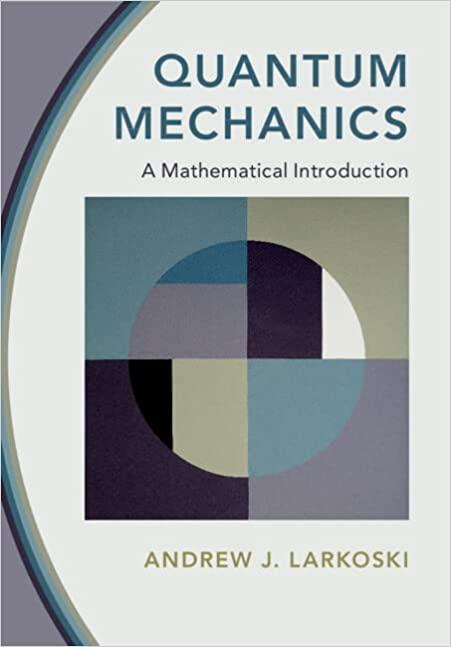In Sec.12.4.3, we motivated and introduced Bell's inequalities for unambiguous observation of quantum entanglement. There we demonstrated
Question:
In Sec.12.4.3, we motivated and introduced Bell's inequalities for unambiguous observation of quantum entanglement. There we demonstrated that a classical, random density matrix of two spins satisfied inequalities that could be violated by a pure, entangled quantum state. In this exercise, we will explore the extent to which the converse is true. Do there exist entangled states that do not violate Bell's inequalities?
(a) Let's first tie up a loose end from the analysis in Sec.12.4.3. From the definition of the operator \(\hat{C}\) in Eq. (12.106), show that it squares to the expression for \(\hat{C}^{2}\) in Eq. (12.105). Don't forget to use the fact that each of the individual spin operators squares to an operator that is proportional to the identity.
(c) With this result, are there entangled states that do not violate Bell's inequality?
(b) Consider the pure state \(|\psiangle\) of the spins of a bottom \(b\) and anti-bottom \(\bar{b}\) quark, where
\[\begin{equation*}|\psiangle=\sqrt{w}\left|\uparrow_{b \downarrow \bar{b}}\rightangle+\sqrt{1-w}\left|\downarrow_{b} \uparrow_{\bar{b}}\rightangle . \tag{12.155}\end{equation*}\]
Here, \(0 \leq w \leq 1\) represents the fraction of the state in which the bottom quark has spin-up and the anti-bottom quark has spin-down along the \(z\) axis. If either \(w=0\) or \(w=1\), this pure state reduces to a separable state, exhibiting no entanglement. Therefore, in these limits, this separable state would satisfy Bell's inequality of Eq. (12.125). However, for all \(0
Step by Step Answer:

Quantum Mechanics A Mathematical Introduction
ISBN: 9781009100502
1st Edition
Authors: Andrew J. Larkoski





